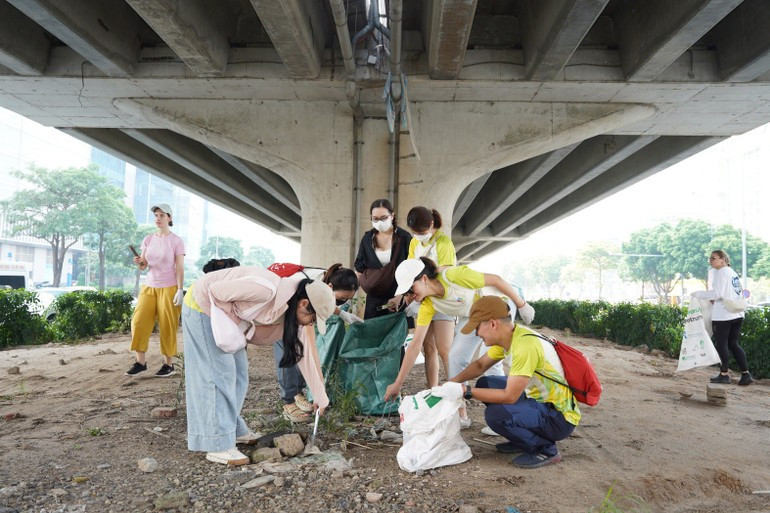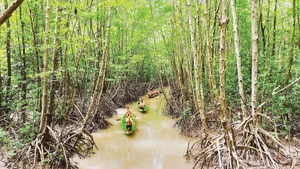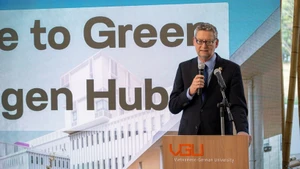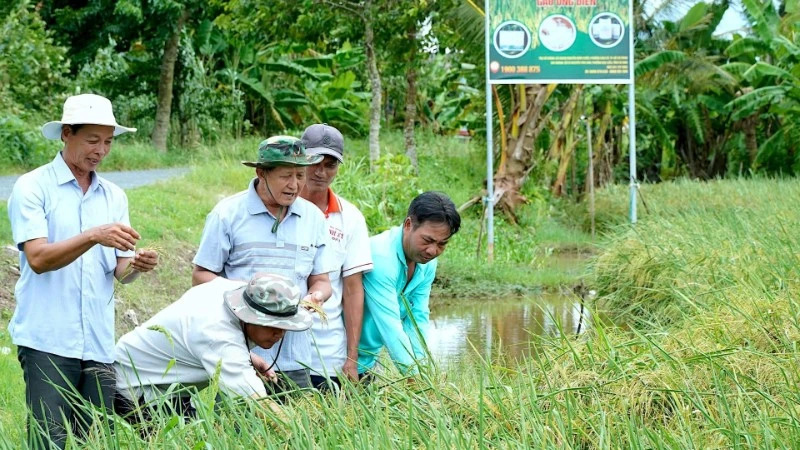Young generations lead the “green” trend
With the theme “5% Pioneering – Global Spread”, the World Cleanup Day 2025 held in Ha Noi in mid-September spread meaningful messages: more than 300 volunteers, many of whom are young people, collected nearly 850kg of waste along Pham Hung Street. The message conveyed was that if even just 5% of the population pioneers in action, society will change.
“Waste collection is just the starting point. What matters is changing habits: from littering to sorting, recycling, and reducing single-use plastics. Once you take action, you are part of the 5% people who can spread influence to the community,” emphasised Nguyen Thi Cam Tu, National Coordinator of Let’s Do It Viet Nam.
Many young participants realised the value of small actions. Nguyen Dinh Hai Lam, a student from the National Economics University, shared that he felt he contributed to something bigger than himself when he saw the bags of collected waste.
“On behalf of Estonia — the nation that launched this global movement — I sincerely thank all of you in Viet Nam for contributing with passion and dedication. When millions of people carry out small actions together, we can create big changes for future generations. Let us continue to join hands for a cleaner, greener, and more sustainable planet. I hope this wonderful movement will continue to spread strongly in Viet Nam and around the world,” said Hannes Hanso, Ambassador of the Republic of Estonia to China, Viet Nam, Mongolia, and Thailand.
In addition to Ha Noi, the campaign was also organised simultaneously in Da Nang, Ho Chi Minh City, Quy Nhon, Quang Ngai, Can Tho, and other localities, with the participation of more than 1,000 volunteers who collected over three tonnes of waste, most of it are single-use plastic.
Nguyen Thi Hong Nhung, a student from Quy Nhon University, shared that living by the sea, she witnessed plastic waste drifting ashore every day. Taking part in the cleanup helped her recognise the personal responsibility for the community.
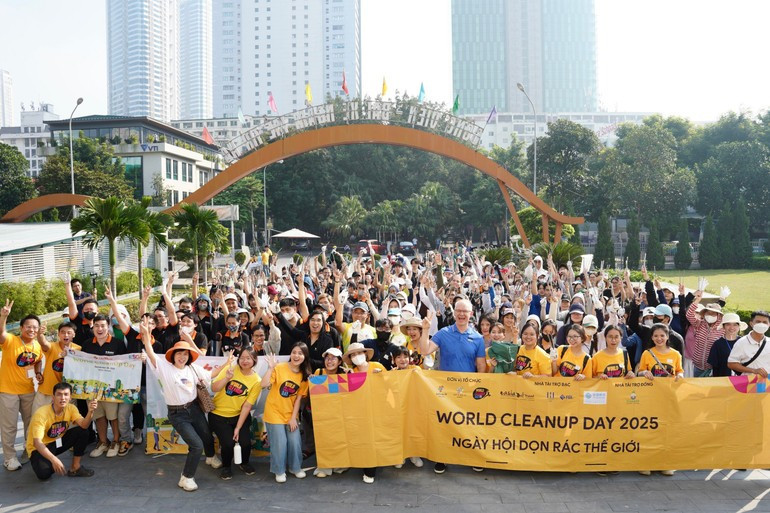
In Viet Nam, the movement also receives support from businesses, social organisations, and local authorities, demonstrating joint efforts to make environmental protection a part of community life rather than a temporary campaign.
A new generation of consumers with a sustainable lifestyle
Plastic waste remains a major challenge in Viet Nam. According to the Ministry of Agriculture and Environment, millions of tonnes of plastic waste are discharged each year, but only 27% of it is recycled or reused. This is a modest figure compared to the potential, as 86% of plastic waste could be recycled, however, in fact only 13% is treated due to waste not being classified at source .
According to a survey conducted by TGM Research in collaboration with the Packaging Recycling Organisation Viet Nam (PRO Viet Nam) in 2024, 85% of females aged 15–24 are aware of the positive impact of reducing, reusing, and recycling. Many specific activities have become young people’s habits such as sorting waste, bringing personal bags when shopping, and increasingly using recycled products.
Significantly, 76% of young people said that they were willing to choose products with less attractive packaging made from recycled materials over regular ones. Meanwhile, 87% believe that using recycled products is the right choice for the environment. Awareness of the 3R rule (Reduce–Reuse–Recycle) is becoming popular. It not only helps to lessen waste treatment costs but also reduces pressure on natural resources and prevents environmental degradation.
Many businesses have recognised this green trend of the new generation of consumers and adjusted their development strategies.
“Vietnamese consumers today, especially Gen Z and Gen Alpha, have a high awareness of environmental protection. They demand businesses to reduce emissions and develop sustainable products. Only by meeting these requirements can businesses win and retain them in the long term,” noted Nguyen Quang Tri, Marketing Executive Director of Vinamilk.
A typical example is Annam Gourmet. Since 2018, the retail chain has encouraged customers to bring their own bags, reducing single-use plastic bag consumption. After seven years, it has helped cut the number of plastic bags discharged into the environment by 9.4 million and distributed nearly 100,000 reusable bags.
Moving beyond business actions, young people are also becoming a decisive factor in shaping a sustainable consumption market.
“I appreciate companies that are making efforts to protect the environment in their production and operations. I often prioritise buying their products, even willing to pay extra if the packaging is environmentally friendly,” shared Ngo Mai Gia Han, a Gen Z working for a company providing services and training course on sustainable development.
She also said that many of her Gen Z friends with good incomes and concerning about environmental issues are often loyal to brands committed to sustainable development. Factors such as recycled packaging, energy-saving operational processes, or using clean energy are considered when they make purchasing decisions.
It is evident that green lifestyle is no longer a slogan but has become a consumption choice and practical actions of young Vietnamese people. As the new generation not only raises awareness but is also willing to pay to protect the environment, businesses must change in order to survive and develop.
The companion of young people, businesses, communities, and authorities is creating a combined strength, helping to make environmental protection a part of living culture, towards a more sustainable future for Viet Nam and the world.
